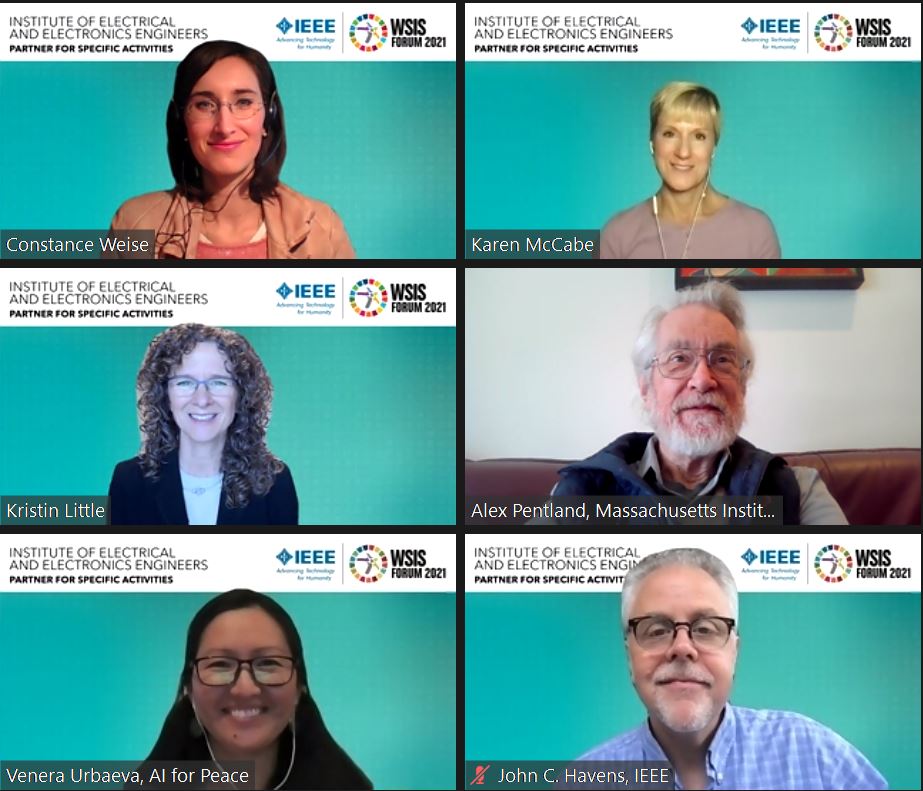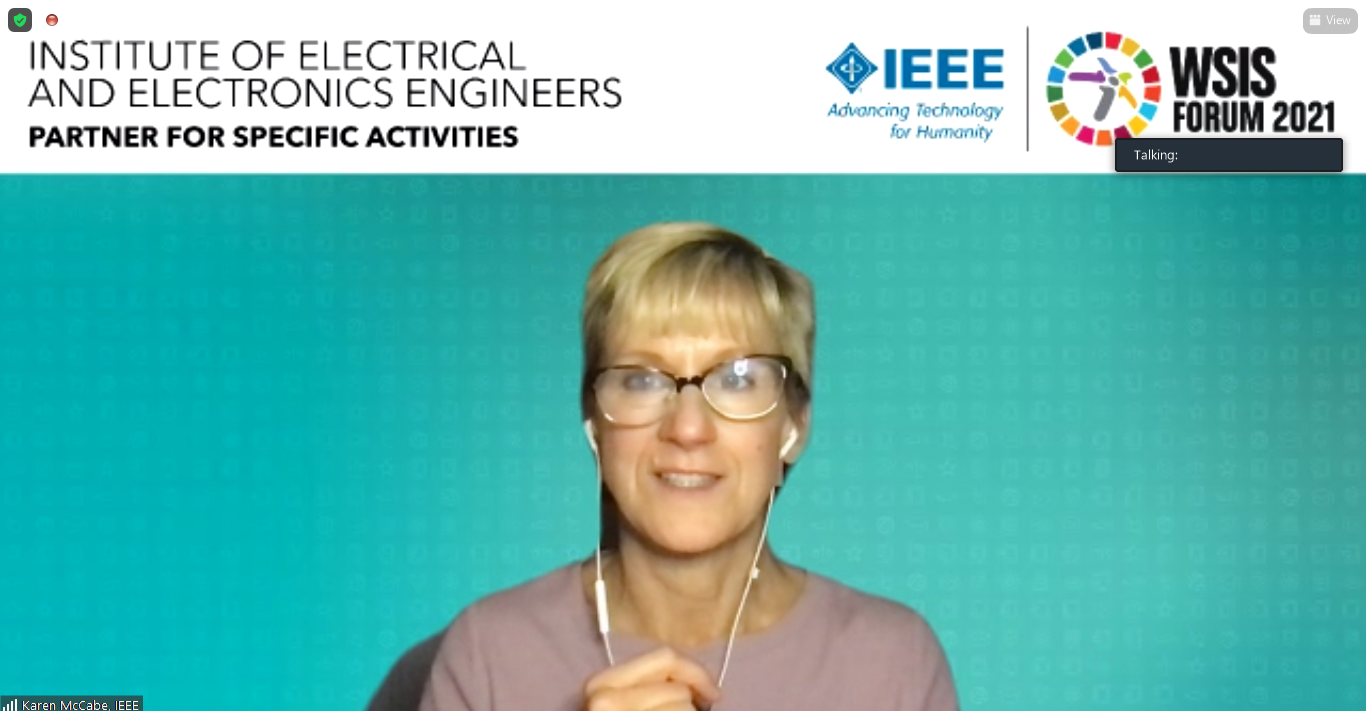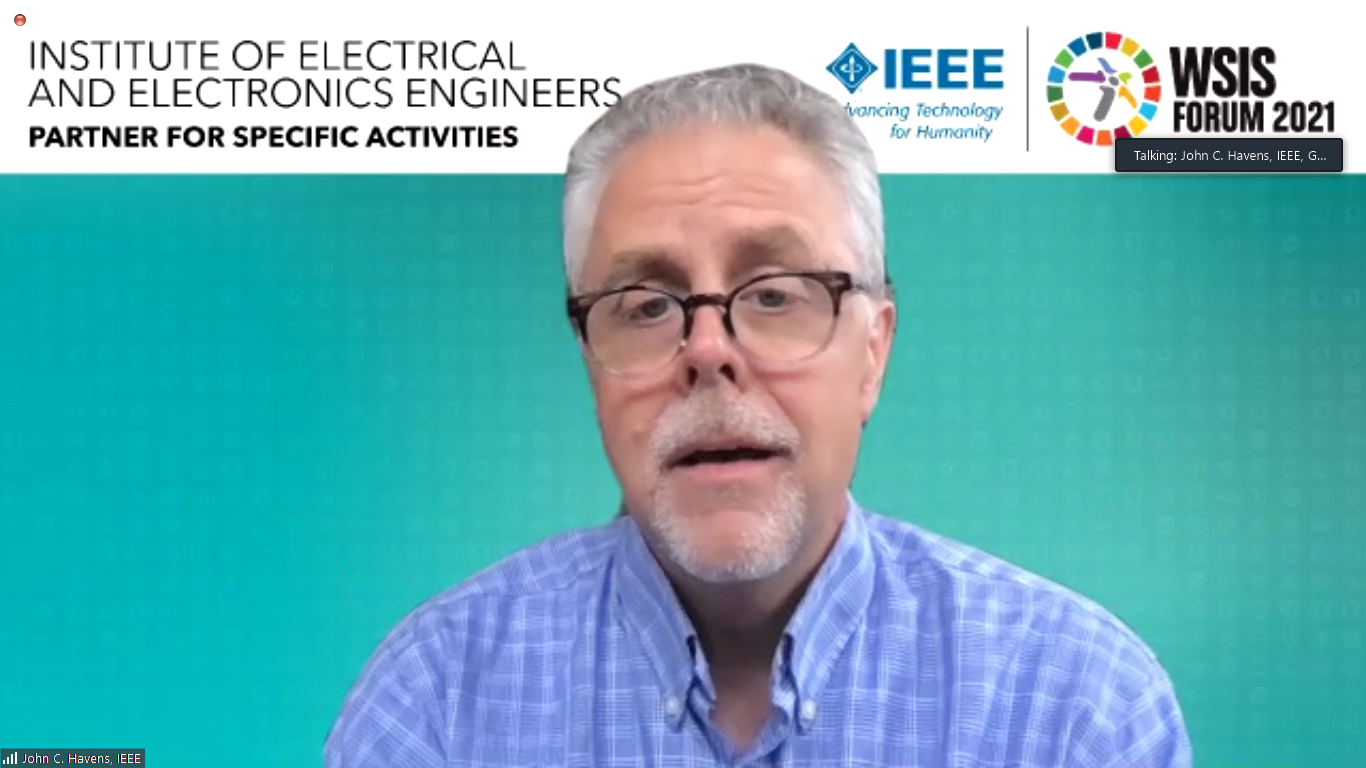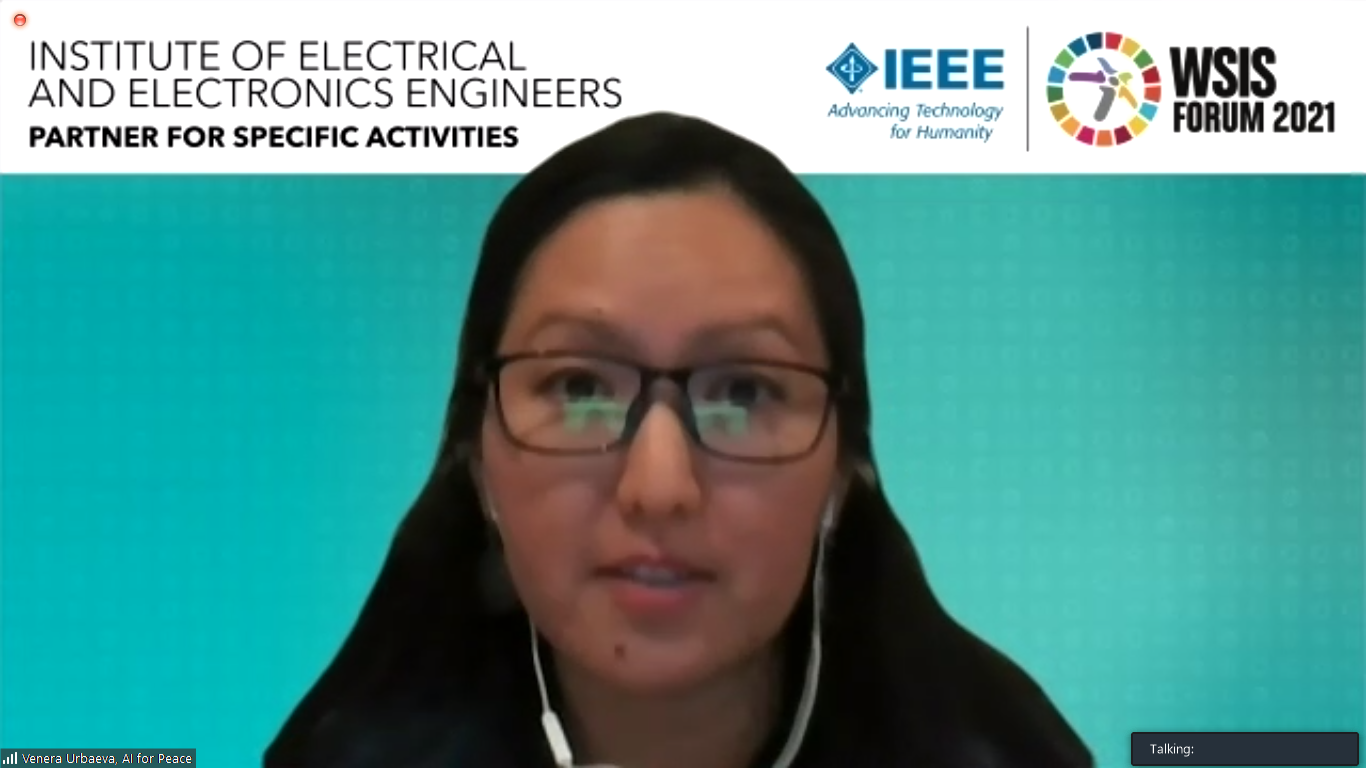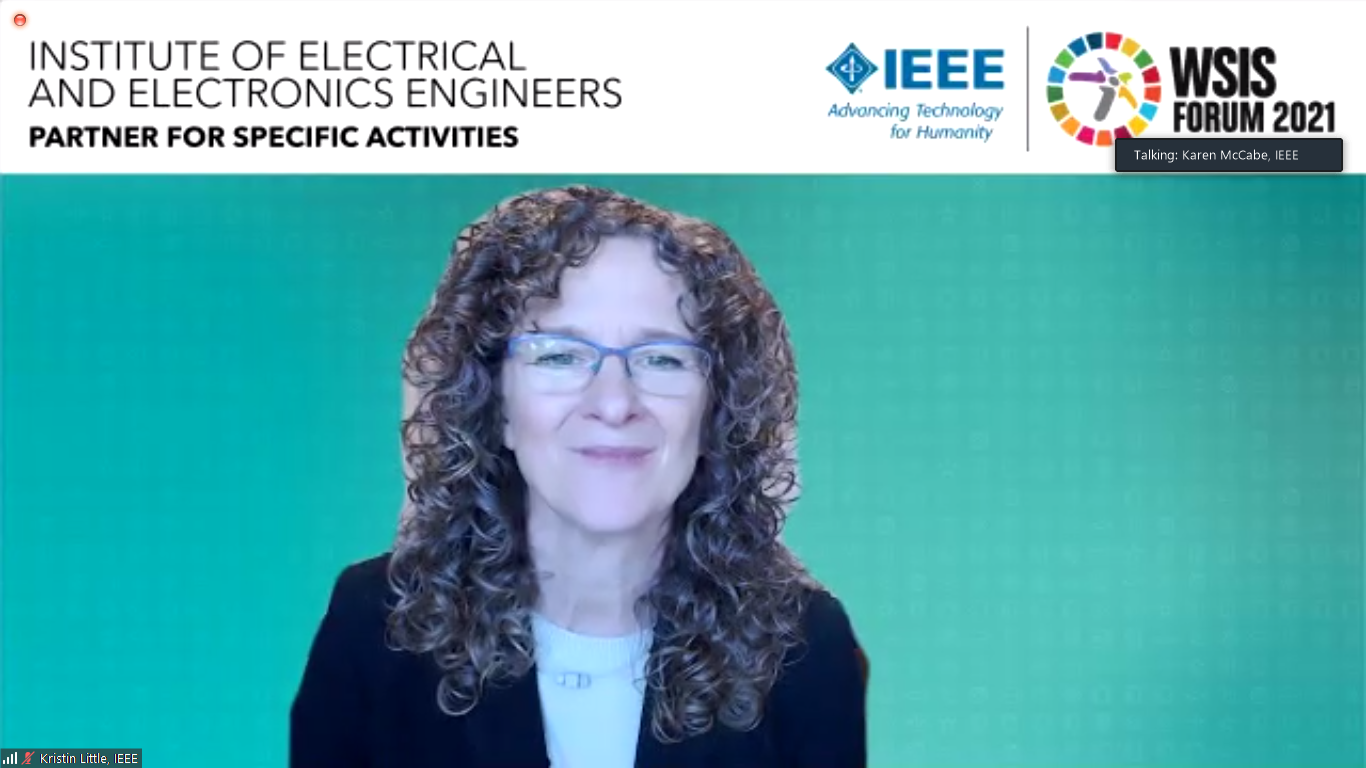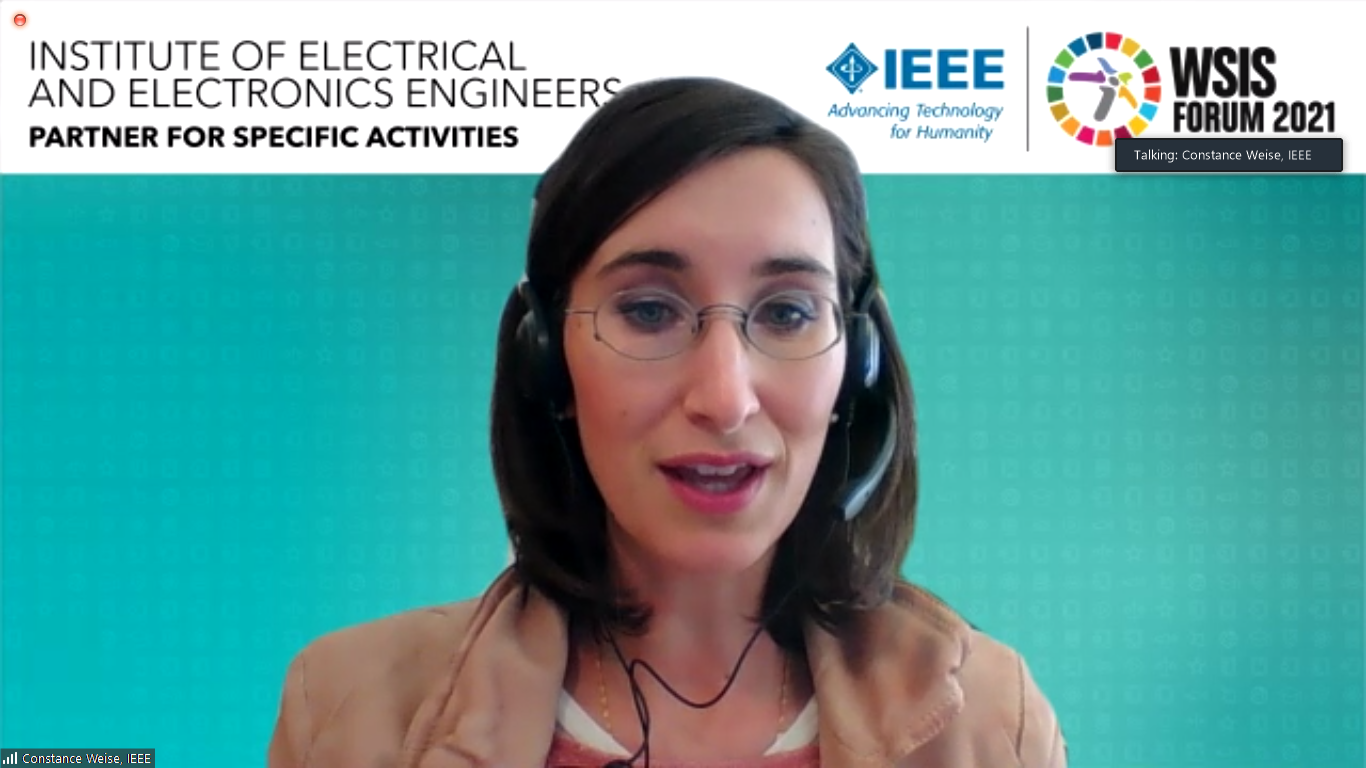Knowledge Café - Measurementality: Children’s Data and Sustainability
Institute of Electrical and Electronics Engineers (IEEE)
Session 270
With the WSIS Action Line C10 Ethical Dimensions of the information Society serving as the backdrop, the conversation at this knowledge café is set in the context of defining what counts in the algorithmic age, where participants--through sharing insights and ideas and surfacing the group’s collective knowledge--will gain a deeper understanding in how to measure and protect children’s data.
Having agency over our identity is a precondition for self‐determination and freedom. Translated into the algorithmic age, this means agency over our digital footprint and access to and the ability to utilize our data. It has become evident that artificial intelligence (AI) systems also have a downside; in conjunction with other technologies and behavioral marketing practices they can cause harm, especially for children. Therefore, it is imperative to move beyond business as usual and to prioritize the well-being of our children, starting with protecting their privacy and security online. If we fail to do this, their agency, mental health, and self‐actualization as humans in any culture will be reliant on forces beyond their control. And their impact in a sustainable future can be hindered.
Today, a large number of social platforms used by children were not designed with children’s rights and well-being front of mind. As a result, they often fail to take account of the vulnerabilities and unique capacities that children have. Children must be able to explore, learn, and develop in trustworthy environments that enable them to fulfill their curiosities at an age‐appropriate level and within the context of their familial societies.
All participating in this Knowledge Café will discuss issues like data privacy for children, data agency for all, and how metrics like the United Nations Sustainable Development Goals and other human rights oriented metrics are being utilized in the design of AI systems, and will start to frame tangible approaches and solutions for ensuring the well-being of children in the digital and AI age.
Join John C. Havens (moderator), Executive Director of the IEEE Global Initiative on Ethics of AI Systems, Sandy Pentland, Professor at MIT, and Branka Panic, Founder of AI for Peace, as they set the stage for the discussions and move to break out groups for a deeper dive into topics including how can we respect, protect, and promote children’s data rights, how frameworks for developing age appropriate digital services where users are children can be implemented, and what are the measures of success for a positive and sustainable future for children.

John C. Havens is the Director of Emerging Technology and Strategic Development at IEEE, and serves as the Executive Director of the IEEE Global Initiative for Ethical Considerations in Artificial Intelligence and Autonomous Systems. John is a regular contributor on issues of technology and wellbeing to Mashable, The Guardian, HuffPo and TechCrunch and is author of Heartificial Intelligence: Embracing Our Humanity to Maximize Machines and Hacking Happiness Why Your Personal Data Counts and How Tracking it Can Change the World. John was an EVP of a Top Ten PR Firm, a VP of a tech startup, and an independent consultant. He was also the Founder of The Happathon Project, a non-profit utilizing emerging technology and positive psychology to increase human wellbeing.
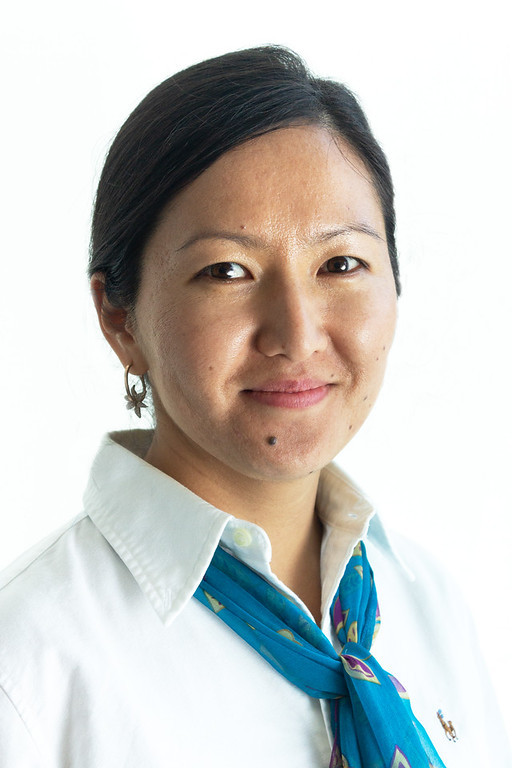
Venera is a child protection specialist and a public health advocate with 14 years of development and humanitarian experience. She currently leads AI for Peace’s work on safeguarding children from harm and risks in the digital space, while amplifying opportunities presented by technologies to promote child development and wellbeing.
Venera has previously worked with UNICEF to support the wellbeing and resilience of children and adolescents in armed conflicts through development of child-centered, gender sensitive and age appropriate services. Venera is passionate about improving the lives of children and adolescents in the digital age through research, evidence-based programming, policy-making and advocacy.

Alex 'Sandy' Pentland directs MIT Connection Science, an MIT-wide initiative, and previously helped create and direct the MIT Media Lab and the Media Lab Asia in India. He is one of the most-cited computational scientists in the world, and Forbes recently declared him one of the "7 most powerful data scientists in the world" along with Google founders and the Chief Technical Officer of the United States. Alex is on the Board of the UN Foundations' Global Partnership for Sustainable Development Data, co-led the World Economic Forum discussion in Davos that led to the EU privacy regulation GDPR, and was central in forging the transparency and accountability mechanisms in the UN's Sustainable Development Goals. He has received numerous awards and prizes such as the McKinsey Award from Harvard Business Review, the 40th Anniversary of the Internet from DARPA, and the Brandeis Award for work in privacy. He is a member of advisory boards for the UN Secretary General and the UN Foundation, and the American Bar Association, and previously for Google, AT&T, and Nissan. He is a member of the U.S. National Academy of Engineering and leader within the World Economic Forum.
-
 C3. Access to information and knowledge
C3. Access to information and knowledge
-
 C5. Building confidence and security in use of ICTs
C5. Building confidence and security in use of ICTs
-
 C10. Ethical dimensions of the Information Society
C10. Ethical dimensions of the Information Society
This session is relative to Action Lines C3 (Access to Information and Knowledge), C5 (Build Confidence in ICTs) and C10 (Ethical Dimensions of Information Society). Today, a large number of social platforms used by children were not designed with children’s rights and well-being front of mind. As a result, they often fail to take account of the vulnerabilities and unique capacities that children have. Children must be able to explore, learn, and develop in trustworthy environments that enable them to fulfill their curiosities at an age‐appropriate level and within the context of their familial societies. Also, by positive and enriching experiences with digital technologies that prioritize their well-being and safety, and protect their data, there is hope that as children grow into adulthood, they have increased confidence in ICTs, and support a sustainable future for generations to come.
-
 Goal 3: Ensure healthy lives and promote well-being for all
Goal 3: Ensure healthy lives and promote well-being for all
This session is relative to SDG 3 (Ensure healthy lives and promote well-being for all). Technology can enhance inclusion, opportunity, and flourishing of children, but there are also risks related to privacy, safety, and security. There is the real danger that innovative technology will move from the betterment and advancement of children-centric applications, to that of invasive and exploitative uses of surveillance capable technologies that do not respect children’s dignity. By 2030, Goal 3 calls to ensure that all learners acquire the knowledge and skills needed to promote sustainable development, including, among others, through education for sustainable development and sustainable lifestyles, human rights, etc. Advancements toward this goal are linked to ensuring that children can access digital environments and tools that prioritize their well-being and protect their data.
Official webpage: https://www.standards.ieee.org
Twitter: https://twitter.com/IEEESA
Facebook: https://www.facebook.com/ieeesa/
LinkedIn: https://www.linkedin.com/company/ieee-sa-ieee-standards-association/
